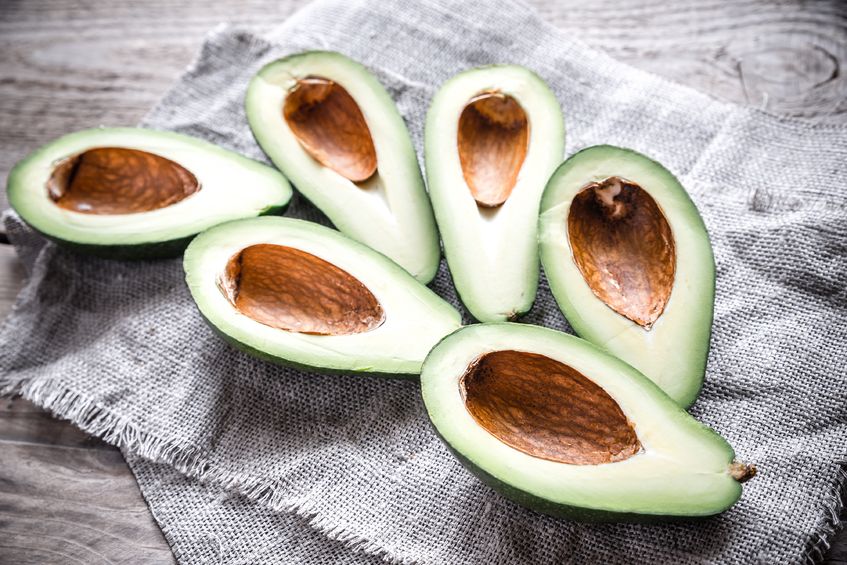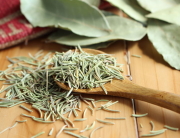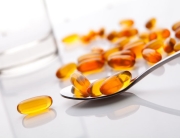Most people know that avocados are a great food source for healthy monounsaturated fats. And in order to maintain good health, you need to consume a certain amount of ‘healthy’ fat. Good-for-you fats are monounsaturated and polyunsaturated fats. Even the American Health Association recommends that total fat intake should be at 25 to 35 percent of your daily calories.
As well, daily saturated fats should be less than seven percent. The remaining 19 to 29 percent of daily fat intake should come from poly and monounsaturated fats. That is about 34 to 50 grams of healthy fat on a 2000 calorie a day diet (50 to 70 grams of total fat).
Now a 1 cup serving of avocado contains about 22 grams of fat. That is 34 percent of daily recommendations of 65 grams for people who have a 2000 calorie diet. Basically, a one cup serving would be 18 grams of monounsaturated fat and 3 grams polyunsaturated fat. By the way, the monounsaturated fat in avocados includes omega-9 oleic acid; the identical type of fat that makes olive oil extremely healthy.
Numerous Vitamins and Minerals for Added Health Benefits
Besides being a great source of healthy fats, avocados have a high content of nutrients. Avocados are rich beta carotene, fiber, folate (a B vitamin), magnesium and potassium. In fact, avocados have 60 percent more potassium than bananas do and that’s ounce for ounce.
As well, avocados are high in vitamin E, C and K. And as you may know, vitamin E is beneficial for your cardiovascular system. It helps reduce cholesterol oxidization which can lead to heart attacks and strokes. Additionally, vitamin E is an antioxidant that protects cells from the damaging effects of free radicals.
Avocados also have a noteworthy amount of Vitamin C which can reduce inflammation, improve circulation, boost the immune system and strengthen collagen for young looking and firm skin.
Avocados are a great source of vitamin K. In fact, half an avocado has 21.2 micrograms of vitamin K which is up to 17 percent of daily requirements. This amazing vitamin is needed for healthy platelet function (proper blood clotting), healthy bones and calcium metabolism.
And when it comes to B vitamins, avocados are no stranger. One cup of this superfood contains 42% of the daily dietary reference intake (DRI) of pantothenic acid, 30% of the DRI of folate and 23% of the DRI of vitamin B6. Avocados are especially high in folate which supports cellular renewal. Cellular regeneration is known to play a big factor in lowering the risk of some types of cancers.
Another important nutrient is beta carotene. Now most foods high in beta carotene are a bright orange or red. Believe it or not, avocados have a lot of beta carotene. In fact, a 2 ounce serving contains 38 micrograms of beta-carotene. Now beta-carotene is not an essential nutrient.
However, the human body coverts it into vitamin A. For healthy skin, to support the immune system, and good vison and eye health; vitamin A is a necessity.
Adding More Avocados to Your Diet
Most everyone is familiar with guacamole, but there are numerous other ways to add more avocados to your diet. Here are a few suggestions:





























Leave A Comment